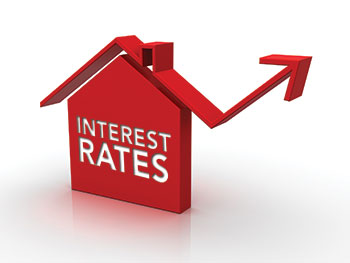KARACHI: The State Bank of Pakistan (SBP) is likely to raise the benchmark policy rate in the upcoming meeting of its Monetary Policy Committee (MPC) on September 14, analysts have said.
The monetary policy is a set of tools a central bank uses to control the supply of money to promote economic growth and decrease inflation. The SBP has increased the policy rate by 12.25 percentage points since April, mainly citing rising inflation.
Four analysts that Profit reached out to expect the policy rate to be increased at the upcoming meeting. JS Global’s Head of Research Amreen Soorani and Ismail Iqbal Securities’ Head of Research Fahad Rauf both expect the policy rate to be raised by 100 basis points (bps).
Meanwhile, Sana Tawfik, a senior analyst at Arif Habib Limited, said the policy rate could be hiked by 100-150 bps. She added, however, that the hike was “not warranted” because inflation would come down in the second half of the fiscal year due to the high-base effect.
Inflation has remained elevated since mid-2022, rising to a record high of 37.97 percent in May this year. However, it has fallen below 30 percent in recent months due to the high-base effect — since inflation was already elevated last year, the year-on-year difference in FY24 will not be as high — and was recorded at 27.4 percent in August.
Tawfik said there would be inflationary pressure in the near term due to rupee depreciation, high oil prices, and hikes in electricity and gas tariffs. “So, obviously, there will be inflationary pressure in the short term. It depends on what the SBP [analyses] — core inflation or a forward-looking basis.”
“The important aspect here is that the inflationary pressure is due to supply and fiscal sides. The SBP can keep raising the monetary policy but unless there are fiscal reforms … electricity and other reforms, the rate hikes will only increase the government’s cost of borrowing.”
The analyst noted the central bank could also raise the policy rate as the International Monetary Fund (IMF) had asked for a tight monetary policy.
Meanwhile, Chase Securities’ Research Director Yousuf Farooq said the SBP might consider hiking the policy rate to stem the decline in the rupee’s value.
It closed at an all-time low of Rs 307.1 per US dollar in the interbank market on Tuesday, while it was trading at Rs 323 per dollar in the open market, according to the Exchange Companies Association of Pakistan. The actual rates offered by exchange companies are likely to be much higher.
However, Farooq said the rupee was not under pressure due to current imports [the government removed restrictions on opening letters of credit after reaching an agreement with the IMF], but rather because of pending payments from last year when the central bank asked importers to make purchases with 180-365 days of credit.
“Once those payments are done, pressure on the rupee should reduce, especially after the current round of devaluation,” he added.
Farooq further commented the interest rate could be increased, adding the caveat that the SBP has more current data to analyse that is not available to the public.




